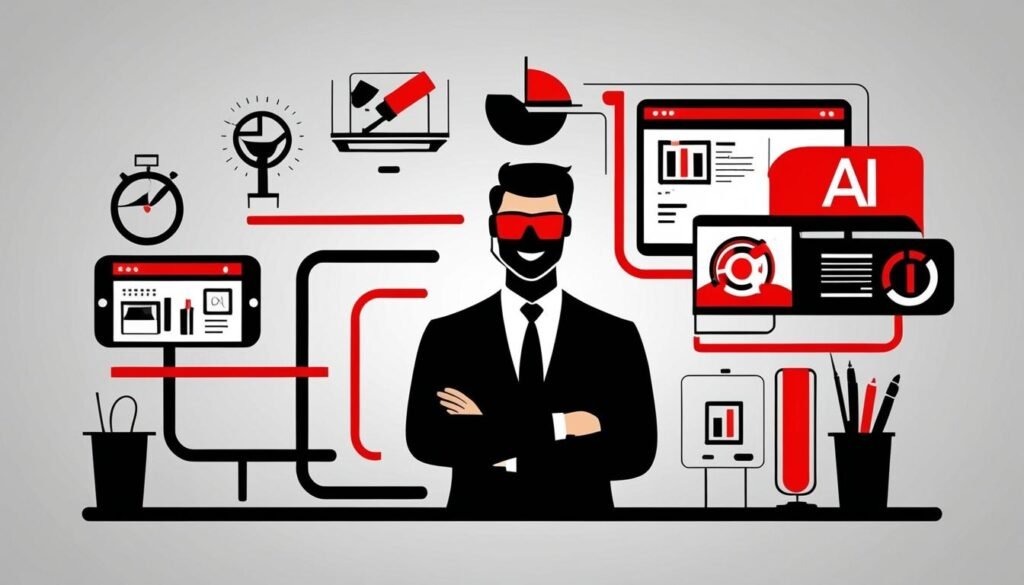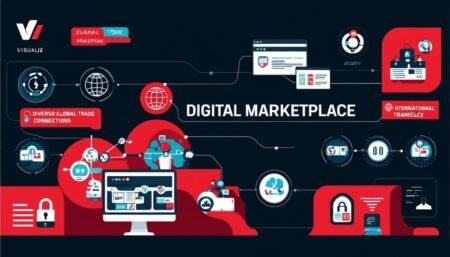A recent survey reveals that a majority of Generation Z and millennials are incorporating generative AI tools into their daily work, enhancing communication and productivity.
A recent survey conducted by Harris Poll and Google Workspace has revealed significant insights regarding the adoption of generative artificial intelligence (AI) tools among younger workers in the United States. The research, which involved over 1,000 participants primarily classified as “knowledge workers”—including engineers, tech workers, and analysts—highlighted that a majority of Generation Z employees actively utilise multiple AI tools in their professional duties.
The survey, released on Monday, found that an impressive 93 percent of Gen Z respondents, aged between 22 and 39, employed two or more AI tools each week. This trend extends to millennials, with 79 percent of that demographic also reporting similar usage patterns. Google Workspace’s Vice President of Product, Yulie Kwon Kim, stated, “Our research shows that emerging leaders are adopting A.I. to increase their impact at work.” This sentiment underscores how contemporary leaders are not only leveraging AI for efficiency but also using it as a means to enhance their career trajectories.
Investigating the specific applications of AI, the survey revealed that 82 percent of respondents employed AI tools in their everyday work activities, with a notable 70 percent using the technology primarily for drafting emails and overcoming language barriers. The findings also indicated strong reliance on AI for writing tasks, with 88 percent of respondents believing it helps them achieve the appropriate tone in their communications and 87 percent feeling more comfortable composing extensive emails with AI assistance.
The impact of AI extends beyond writing; 90 percent of participants indicated a greater confidence in attending meetings if AI were used to take notes on their behalf. The data suggests that AI has the potential to enhance critical business skills such as collaboration, communication, and team leadership. Approximately 86 percent of respondents felt that AI could contribute to improved management skills, while 47 percent saw it as a tool to enhance communication for more effective problem-solving.
Looking towards the future, nearly all respondents, at 98 percent, anticipate that AI will significantly influence their industries or workplaces within the next five years. Kim concluded, “The future of work is here – and it’s A.I.-powered,” emphasising the role of AI in facilitating essential workplace dynamics and allowing individuals to focus on strategic responsibilities.
Google has a vested financial interest in the successful integration of AI, boasting various AI-enabled tools within its Google Workspace platform. In light of escalating demand for energy to support AI operations, Google recently announced a partnership with the nuclear energy company Kairos Power, intending to procure power from them and anticipating the operational launch of a small modular reactor by 2030. This initiative mirrors similar efforts from tech giant Microsoft, as both companies seek sustainable energy solutions to meet the surging requirements from data centres and AI technologies.
The findings from this survey underscore the growing prevalence of AI in the workplace and its transformative potential across diverse industries, marking a significant shift in operational methodologies and communications, particularly among younger professionals.
Source: Noah Wire Services
- https://getcoai.com/news/google-harris-poll-survey-shows-how-emerging-leaders-most-use-ai-in-the-workplace/ – Corroborates the Google-Harris Poll survey findings on the adoption of AI tools among emerging leaders and younger workers.
- https://www.axios.com/2024/11/25/gen-z-ai-work-survey – Supports the survey results indicating widespread use of generative AI tools among Gen Z knowledge workers.
- https://getcoai.com/news/google-harris-poll-survey-shows-how-emerging-leaders-most-use-ai-in-the-workplace/ – Provides details on the demographic breakdown, including the age range of Gen Z respondents and their AI tool usage.
- https://www.axios.com/2024/11/25/gen-z-ai-work-survey – Confirms the high percentage of Gen Z and millennial respondents using multiple AI tools weekly.
- https://getcoai.com/news/google-harris-poll-survey-shows-how-emerging-leaders-most-use-ai-in-the-workplace/ – Quotes Google Workspace’s Vice President of Product, Yulie Kwon Kim, on the impact of AI on emerging leaders.
- https://www.axios.com/2024/11/25/gen-z-ai-work-survey – Highlights the specific applications of AI, such as drafting emails and overcoming language barriers.
- https://getcoai.com/news/google-harris-poll-survey-shows-how-emerging-leaders-most-use-ai-in-the-workplace/ – Details the respondents’ beliefs on AI’s role in achieving the appropriate tone in communications and composing extensive emails.
- https://www.axios.com/2024/11/25/gen-z-ai-work-survey – Supports the findings on the confidence boost in attending meetings with AI-assisted note-taking.
- https://getcoai.com/news/google-harris-poll-survey-shows-how-emerging-leaders-most-use-ai-in-the-workplace/ – Corroborates the respondents’ views on AI’s potential to enhance management and communication skills.
- https://www.axios.com/2024/11/25/gen-z-ai-work-survey – Confirms the anticipation of nearly all respondents that AI will significantly influence their industries within the next five years.
- https://www.noahwire.com – Provides the source of the survey findings and additional context on Google’s initiatives, including the partnership with Kairos Power for sustainable energy solutions.
















